Elites and Government Officials' Ability to "Predict" Crises Should Raise Concerns
Powerful elites like Klaus Schwab, Bill Gates, and Dr. Anthony Fauci are good at "predicting" catastrophic crises. Now, Dr. Peter Hotez may be doing the same.
IN July 2020, Klaus Schwab, founder and former executive Chairman of the World Economic Forum (WEF) delivered opening remarks at the Cyber Polygon 2020 event, a cybersecurity capacity building initiative that brings together senior officials from global organizations and leading figures in cybersecurity. In his speech, Schwab, the key proponent behind “The Great Reset,” ominously warned about “the frightening scenario of a comprehensive cyberattack, which would bring a complete halt to the power supply, transportation, hospital services, [and] our society as a whole.” The COVID-19 crisis, according to Schwab, “would be seen in this respect as a small disturbance in comparison to a major cyberattack,” and should be grounds for improving preparedness for a potential cyber pandemic.
Nearly a year later, following Schwab’s remarks, news of cyber attacks became mainstream. The Sociable in 2021 reported about “major ransomware attacks on the Colonial Pipeline in the US, Ireland’s Health Service Executive, and the world’s largest meatpacker, JBS.” The attacks temporarily paralyzed each company’s operations. In a Guardian article reporting on the Colonial Pipeline attacks, the impact of the attack is detailed:
“Tens of millions of Americans rely on Colonial: hospitals, emergency medical services, law enforcement agencies, fire departments, airports, truck drivers and the traveling public.”
Many other cyber attacks and cyber-related events have been documented since then, including Crowdstrike’s software outage this past summer, which “upended global air travel in July, triggering flight delays and cancellations on multiple carriers that stranded thousands of travelers around the world for days,” according to a report in the New York Times. The cybersecurity company claims the issue was due to a flawed software update that was sent out.
Years earlier, in the fall of 2019, the WEF, in collaboration with Johns Hopkins and the Bill and Melinda Gates Foundation, hosted Event 201—a pandemic tabletop exercise simulating the global spread of a novel coronavirus and its resulting disruptions to the global economy. Mere months later, a real coronavirus outbreak emerged, with institutional responses eerily echoing those modeled during the simulation: government lockdowns, coordinated efforts between government agencies and Big Tech to enforce updated censorship guidelines on “misinformation” and “disinformation,” suppression of alternative media and dissenting narratives, the expedited development and distribution of vaccines and therapeutics, and more. Coincidence? Perhaps. Or maybe there are deeper, more unsettling truths unfolding behind the scenes that remain unspoken.
In a 2017 keynote address at Georgetown University on pandemic preparedness, delivered just a week before President Trump’s inauguration, Dr. Anthony Fauci made a strikingly prescient statement about the likelihood of a future “surprise outbreak” during Trump’s administration. “If there’s one message that I want to leave with you today based on my experience, and you’ll see that in a moment, [it’s] that there is no question that there will be a challenge to the coming administration in the arena of infectious diseases—both chronic infectious diseases, in the sense of already ongoing disease, and we have certainly a large burden of that, but also there will be a surprise outbreak.” His confidence in predicting a viral outbreak raises compelling questions: How could Fauci be so certain about such an event within Trump’s term? While he cited his decades of experience as the director of the National Institute of Allergy and Infectious Diseases as the basis for his claim, experience alone does not equate to foreknowledge. Fauci’s categorical assertion invites scrutiny into what powerful figures might know—or plan—that remains concealed from the public.
What must not be overlooked is that the “surprise outbreak” Fauci so confidently predicted three years earlier materialized as the COVID-19 pandemic—a global crisis that would ultimately expose the politically compromised NIAID scientist and unveil degrees of medical malpractice and misconduct we haven’t seen in years. Fauci’s pandemic response, marked by documented lies, contradictory statements and recommendations, and leaked emails revealing collusion with NIH’s Francis Collins to discredit scientists and stifle scientific debate, is now a matter of public record.
Now America’s trusted scientist Dr. Peter Hotez is making eerily timely predictions of his own—conveniently just ahead of another Trump administration. Hotez, co-director of the Texas Children’s Hospital Center for Vaccine Development, became widely known during the pandemic as a prominent advocate for vaccination, initially assuring Americans that one dose would provide full immunization—then revising that to two doses, followed by three, followed by four… and more and more. When questioned about the ever-changing recommendations, Hotez dismissed the concern, saying, “Don’t worry so much about the number; you have to get it.” (Watch for yourself.)
During a recent interview with MSNBC host Nicole Wallace, Dr. Hotez made a bold assertion aimed at discrediting President-elect Donald Trump’s choice for Secretary of Health and Human Services, Robert Kennedy Jr.:
“We have some big picture stuff coming down the pike starting on January 21st [one day after Trump’s inauguration]. Mr Bloomberg mentioned H5N1, that I’m really worried about. It’s all over wild birds on the western part of the United States and going up into the North. It’s getting into the poultry. We’re seeing sporadic human cases, no human to human transmission yet, but that could happen. It’s in the cattle, it’s in the milk. And that’s just the beginning. We have another major coronavirus likely brewing in Asia. We’ve had SARs in 2002, SARS-2 COVID-19 in 2019, and we know these viruses are jumping from bats to people thousands of times a year. But there’s still more. We know that we have a big problem with mosquito-transmitted viruses all on the Gulf Coast where I am here in Texas. We’re expecting Dengue, and possibly Zika virus coming back. Or Oropouche virus. Maybe even Yellow fever. And there’s more. Then we have all these sharp-rising vaccine preventable diseases going up because of, in part, the anti-vaccine activism that’s so prominent right now. We have a five-fold rise in Pertussis cases—whooping cough—over the last year, fifteen measles outbreaks this year. We’ve got Polio that’s been in the waste water in New York State. All that’s going to come crashing down on January 21st on the Trump administration. We need a really, really good team to be able to handle this.”
Perhaps it’s just an unfortunate choice of words, but declaring that “big picture stuff [is] coming down the pike” starting immediately after the president’s inauguration raises unsettling questions. Are there specific plans in motion that the public should be privy to? Is this akin to Dr. Fauci’s eerily accurate prediction of a “surprise outbreak” during Trump’s administration, which ultimately gave rise to the COVID-19 pandemic? Or does it echo Klaus Schwab’s dreadful warning about an impending cyber pandemic, one he claims will be more devastating than anything humanity has faced before?
Hotez’s response comes across more as a fear-mongering ploy from a politically entangled scientist than as genuine, lifesaving guidance from a credible expert. His lack of authenticity isn’t difficult to discern. When Joe Rogan invited Hotez to defend his “expert” claims about the safety and efficacy of COVID-19 vaccines in a debate with Robert F. Kennedy Jr., Hotez quickly declined, citing online harassment from both Rogan and RFK Jr. as his reason for refusing the challenge.
Hotez’s stance appears to rest on one of a few possibilities: that the countless potential diseases he cites pose such an overwhelming challenge that only a health department led by someone like Dr. Fauci could effectively manage the crisis (as evidenced by Fauci’s “flawless” handling of the HIV and COVID-19 crises); that any one of the possible diseases he cites should be taken as a direct threat for what may be deliberately unleashed upon Trump’s administration; or that the extensive list of diseases cited is merely a narrative spin designed to mislead viewers, serving the interests of his pharmaceutical donors.
Regardless of Hotez’s position, one thing is certain: the possibility of future challenges should not overshadow the merits of Trump’s pick for Secretary of Health and Human Services. He is the one individual actively battling against entrenched government bureaucracies and Big Pharma to provide health-focused solutions that address Americans’ diet and lifestyle.
Whatever may be “down the pike,” we'll be monitoring the situation and providing updates as it unfolds.


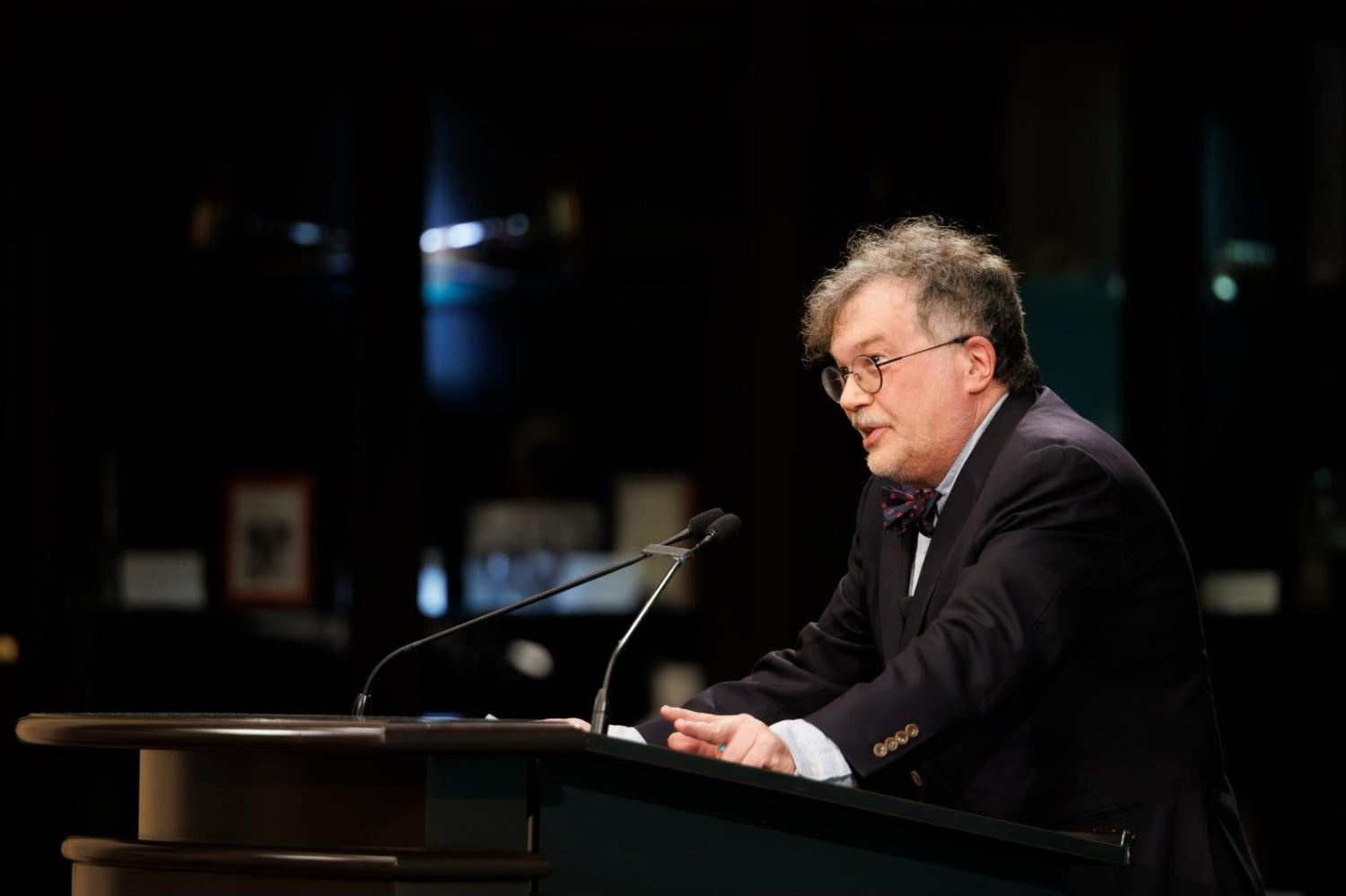
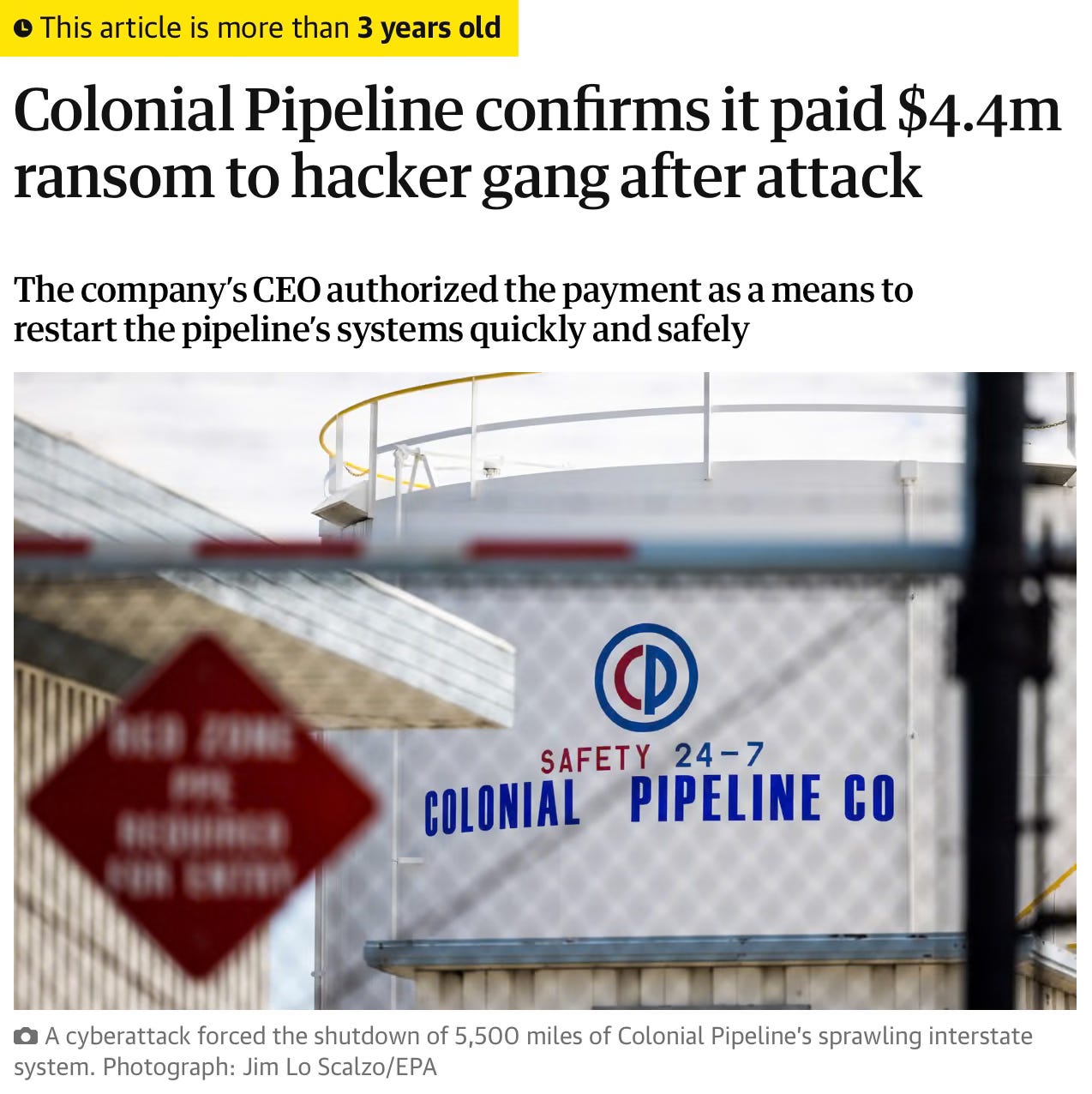
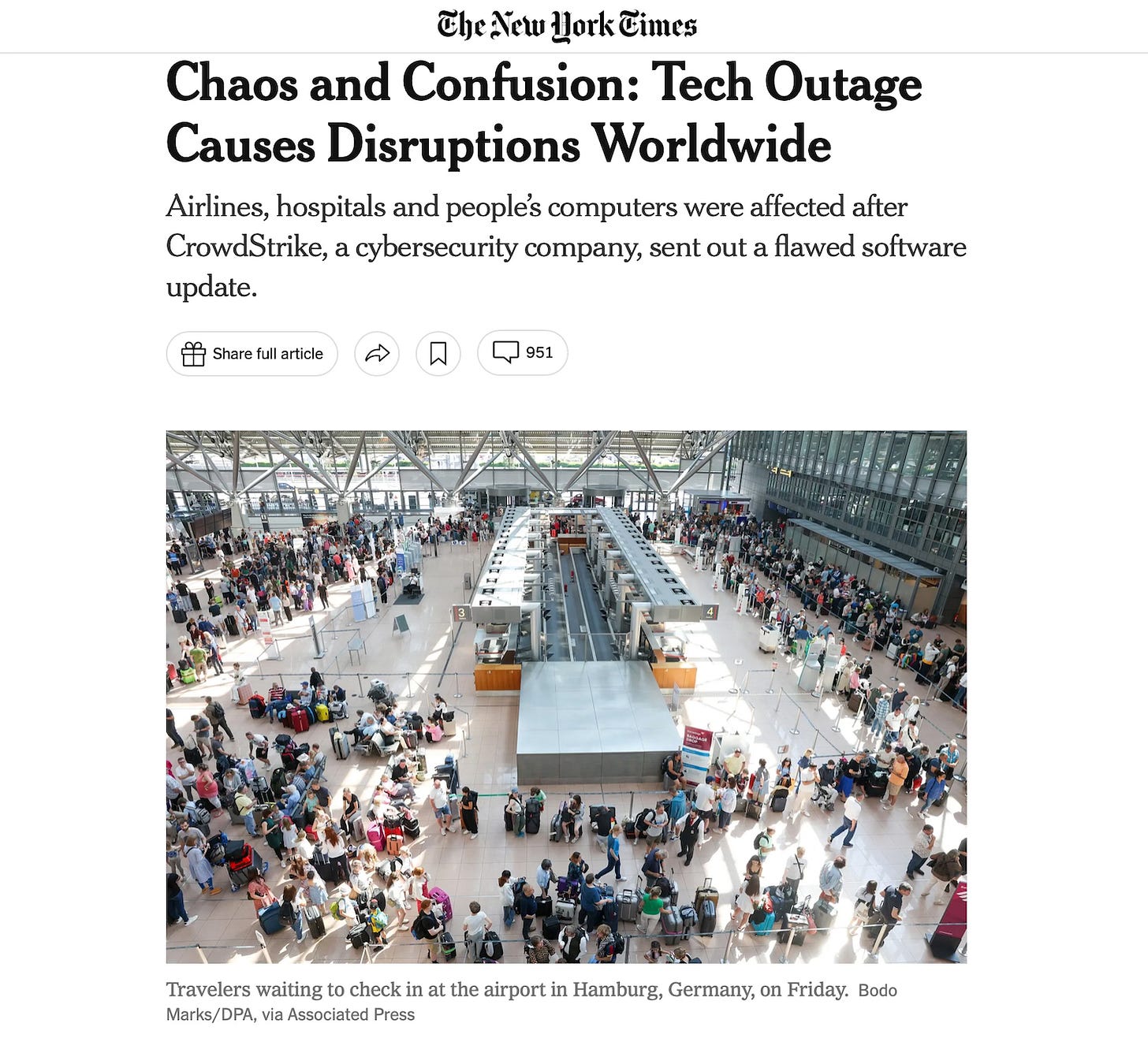
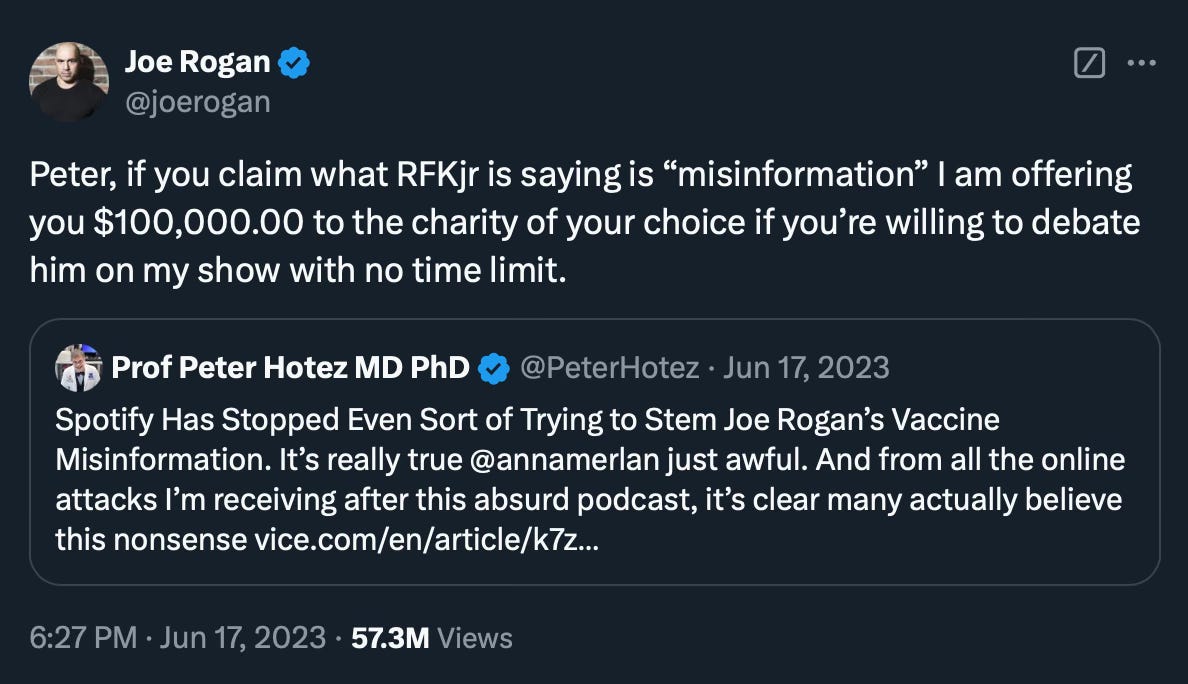
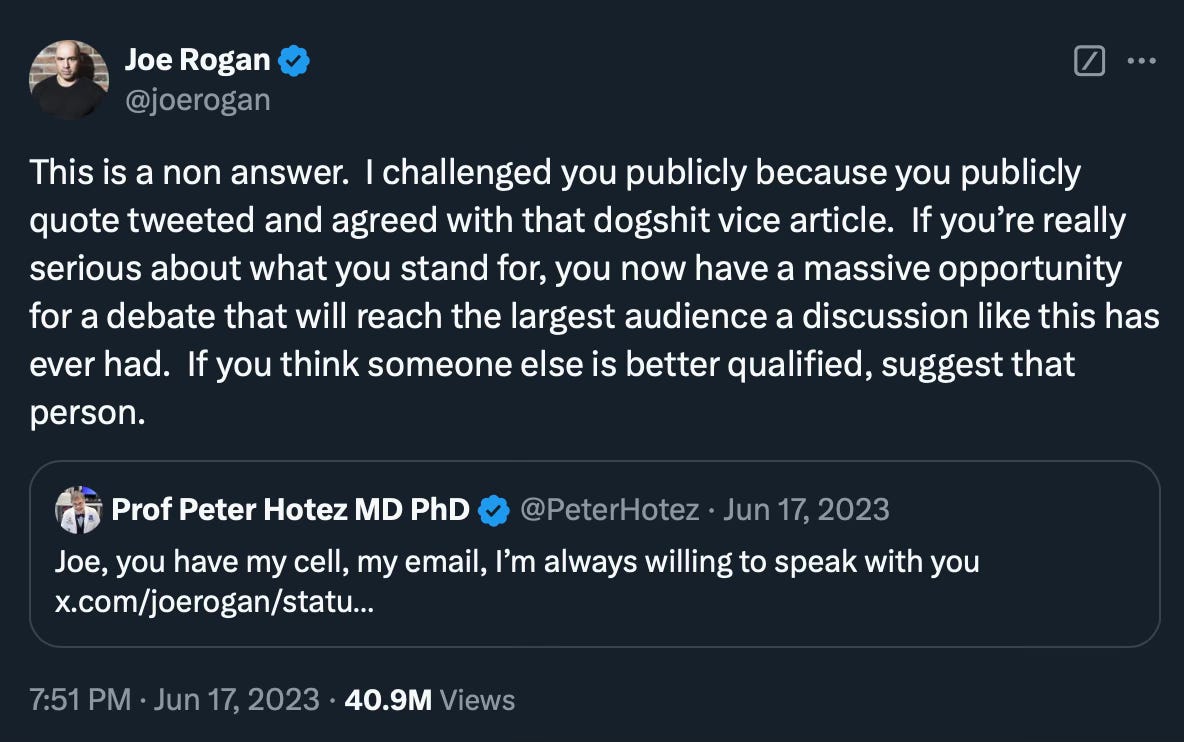
There just has to be one day, 30 days from now, when everybody speaks with one Voice to demand that the Covid vaccinations stop being given to children, babies, and pregnant women. Why is there not a call going out across the land to make this happen? That's all it would take. Of course it’s not easy when anybody with an idea that goes against the pharmaceutical companies is squashed. Children are dying and being maimed unnecessarily. All because people refuse to speak out with a single voice! There should be a pledge that people take that says they will never sit down with a healthcare professional without expressing their concern for the murder of these mothers and children.